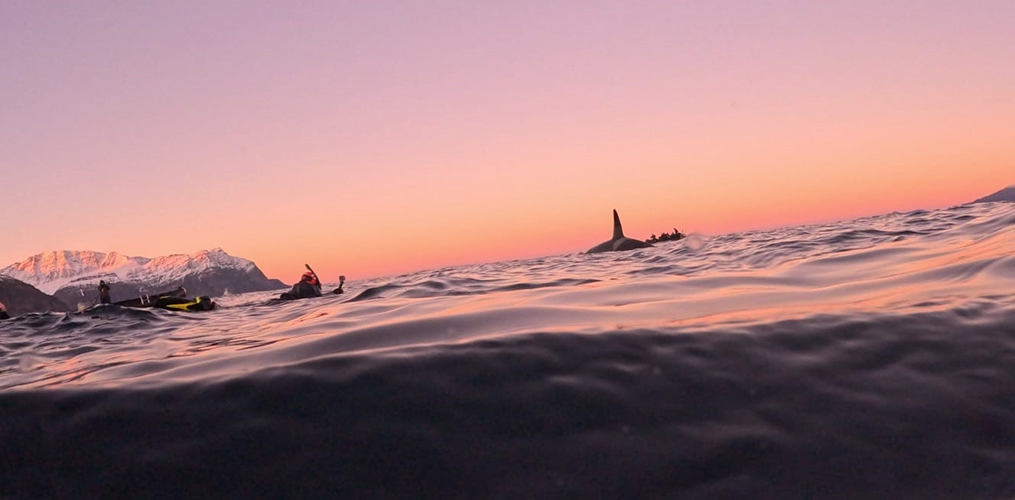
This winter, LifeWatch Belgium provided a key contribution to the citizen science initiative ‘SeaWomen’, an expedition studying marine ecosystem change, orca and whale behaviour in northern Norway, 350 kilometres north of the Arctic Circle, during the winter herring run.
The expedition was unique in many ways. The international team of 34 was exclusively women, non-binary and two-spirit peoples, thereby empowering women and minority groups. In addition, the team represented very diverse backgrounds and skillsets that enabled an interdisciplinary programme of activity, connecting marine and wider environmental science with art, photography, storytelling and more, with the core aim of collecting new knowledge about marine ecosystems in the region and collectively raising awareness about the ocean, and the effects of climate change on the natural world.
LifeWatch Belgium and the Flanders Marine Institute (VLIZ), including Dr Elisabeth Debusschere, contributed expertise and equipment to the ‘SeaWomen’ expedition, including the loaning of a Soundtrap HF 600 (Ocean instrument), a hydrophone to monitor underwater sound, marine mammal and other marine life vocalisations. This complemented a behaviour programme focused on killer whales (Orcinus orca) and included in-water winter snorkelling to obtain photos, videos and observations of the orcas and whales, together with marine environmental measurements including ocean physics (temperature and salinity profiles) and eDNA samples.
Dr Kate Larkin (marine expert at the European Marine Observation and Data Network Secretariat) was also onboard: “This expedition was a completely new approach to positive climate action. All of the women onboard were volunteers, with a common motivation to increase knowledge and societal understanding about the Ocean, and how the Ocean and marine ecosystem is changing as a result of human impact, ranging from climate change to human activities at sea such as fishing, tourism, shipping and more. It was a pleasure to collaborate with VLIZ and LifeWatch Belgium together with other partners and the diverse team of talented women, to make this expedition a reality.”
This article was originally posted on LifeWatch Belgium by Dr Kate Larkin (EMODnet) and Dr Elisabeth Debusschere (VLIZ).